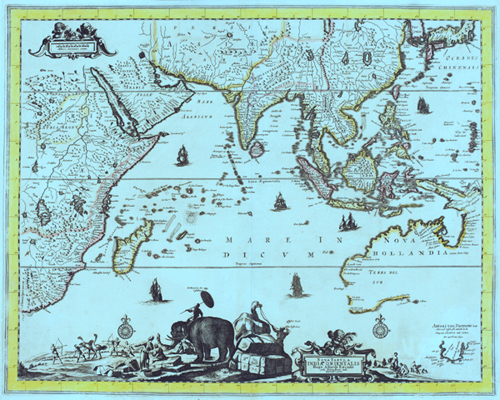
- "Don't forget to wash your hands afterwards!"
Fantasia 1940 - TheSorcerer's Apprentice 11 min - 9 Jan 2009(no sound) ............................................................................................................. www.youtube.com Alfred Hitchcock...Sorcerer's Apprentice. http://www.youtube.com/watch?v=jGYXh5hM-JE - Somebody's gotta take the blame!

Obama Gets Out The Broom (sweep up the oil, Barack!)
Barack Obama got his broom out Saturday, because he sweep the Democratic primaries and caucuses. Obama won Washington, Virgin Islands, Nebraska, and Louisiana. As this Democratic race keeps getting more and more tense be prpared to get on your galoshes, because it is going to get muddy.(and oily)
..................................................................................
'Troubled' has been used to mean agitated and disturbed, either of mind or in reference to physical elements like water or sky, since at least the 14th century. In their use of the singular 'water', rather than 'waters', as the title of their 1970 album and single Bridge over Troubled Water, Simon and Garfunkel harked back to the original usage. We now more commonly say 'troubled waters' but earlier references stick to the singular 'troubled water'. For example, J. Walker in A true report of the disputation or rather priuate conference had in the Tower of London, with Ed. Campion Iesuite, 1581:
"Ffiij, It is troubled water when we mingle our workes and righteousnes with Gods."
Even earlier than that we can find references to 'troubled sea/flood' etc, as in John Wyclif's translation of the Bible, 1388:
"The troblid flood that moistith Egipt."
The spillage of oil into the sea hasn't had a good press in recent years following the many ecological disasters caused by wrecked tankers discharging thousands of tons of crude oil into the world's oceans. In earlier times, the pouring of modest quantities of oil into the sea was done deliberately in order to forestall rough seas. This phrase alludes to the calming effect of that oil has on wave action as it spreads over the surface of the sea. Very small quantities of oil can cover a surprisingly large area as it spreads into a layer just a few molecules in thickness. The surface tension of the oil layer has an effect similar to that of a thin skin and is highly effective at calming 'troubled' water.
The calming effect of oil was known to the ancient Greeks. In 1762, Benjamin Franklin repeated an experiment first performed by Pliny, which he reported in A Letter from Benjamin Franklin to William Brownrigg, 1773:
"At length being at Clapham, where there is on the common a large pond which I observed one day to be very rough with the wind, I fetched out a cruet of oil and dropped a little of it on the water. I saw it spread itself with surprising swiftness upon the surface; but the effect of smoothing the waves was not produced; for I had applied it first on the leeward side of the pond where the waves were greatest; and the wind drove my oil back upon the shore. I then went to the windward side where they began to form; and there the oil, though not more than a teaspoonful, produced an instant calm over a space several yards square which spread amazingly and extended itself gradually till it reached the lee side, making all that quarter of the pond, perhaps half an acre, as smooth as a looking glass."
The use of 'waters', as opposed to 'water', began in the late 18th century. For example, this piece from Benjamin Rush's Essays, literary, moral and philosophical, 1798:
"His presence and advice, like oil upon troubled waters, have composed the contending waves of faction.


+copy.jpg)















.jpg)














.jpg)


No comments:
Post a Comment